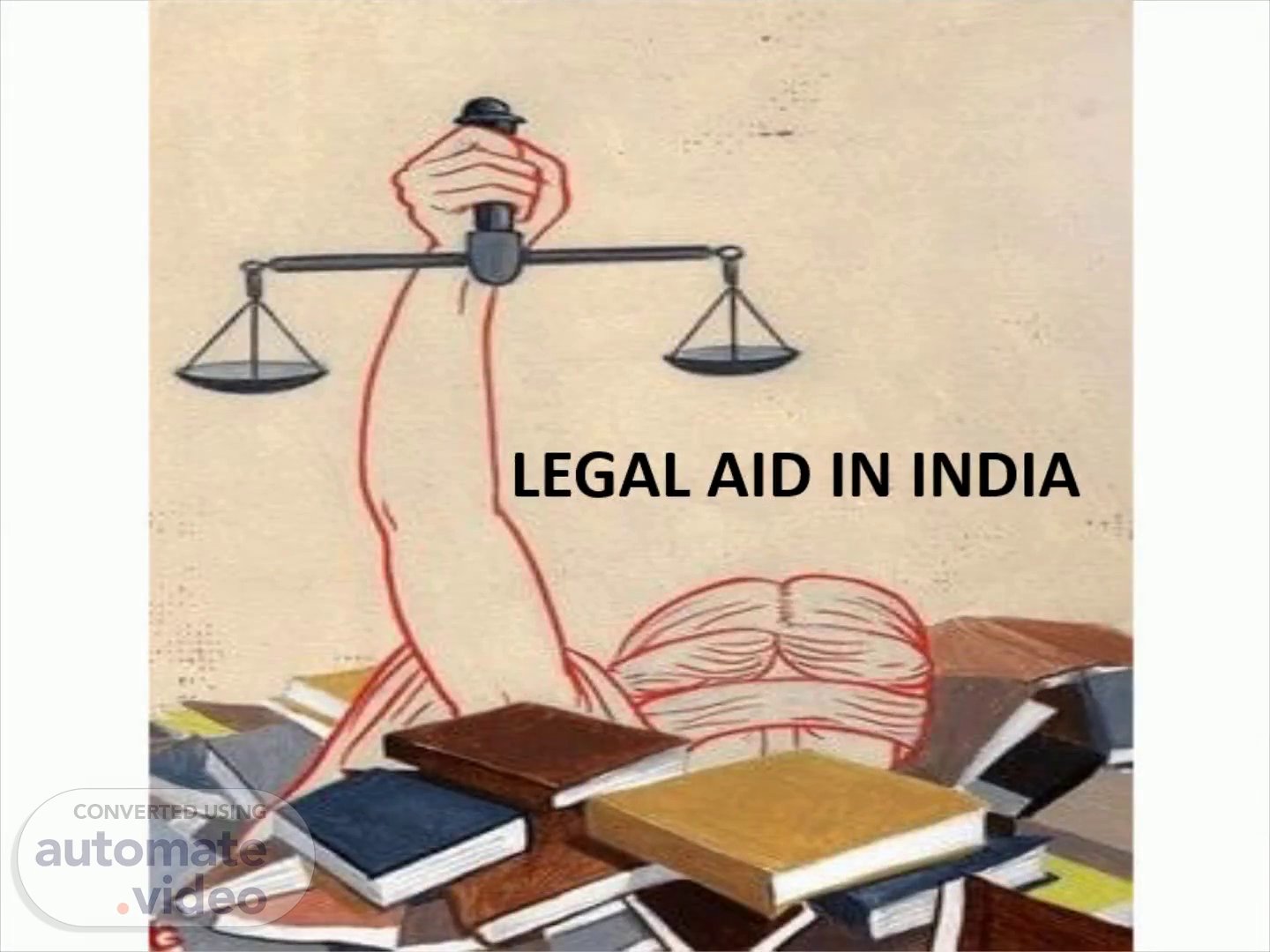Scene 1 (0s)
blob:https://web.whatsapp.com/7e2463f8-aab5-48c2-848a-d4b78dbb4b82.
Scene 2 (9s)
Legal Aid implies giving free legal services to the poor and needy who cannot afford the services of a lawyer for the conduct of a case or a legal proceeding in any court, tribunal or before an authority ..
Scene 3 (26s)
Timeline. 1952 - the Govt. of India also started addressing to the question of legal aid for the poor in various conferences of Law Ministers and Law Commissions. 1960 - guidelines were drawn by the Govt. for legal aid schemes. In different states legal aid schemes were floated through Legal Aid Boards, Societies and Law Departments. 1980 - Committee at the national level was constituted to oversee and supervise legal aid programmes throughout the country under the Chairmanship of Hon. Mr. Justice P.N. Bhagwati then a Judge of the Supreme Court of India..
Scene 4 (55s)
In 1987 Legal Services Authorities Act was enacted to give a statutory base to legal aid programmes throughout the country on a uniform pattern. This Act was finally enforced on 9th of November 1995 after certain amendments were introduced therein by the Amendment Act of 1994..
Scene 5 (1m 13s)
Constitutional Provisions Relating To Legal Aid. Article 21 - Protection of life and personal liberty – No person shall be deprived of his life or personal liberty except according to procedure established by law. Article 39A - Equal justice and free legal aid - The state shall secure that the operation of the legal system promotes Justice on a basis, of equal opportunity, and shall in particular, provide free legal, aid, by suitable legislation or schemes or in any other way, to ensure that opportunities for securing Justice are not denied to any citizen by reason of economic or other disabilities”..
Scene 6 (1m 39s)
Issues And Challenges. The legal aid system in India has proven ineffective. There are four main reasons why the National Legal Services Authorities has not been able to deliver real legal aid: there is a general lack of awareness of the availability of legal aid; there is a perception that free service is incompatible with quality service; there are not enough lawyers delivered by the legal services authorities lawyers generally are uninterested in providing competent legal assistance because of financial constraints..
Scene 7 (2m 5s)
Conclusion. The focus of Legal Aid is on distributive justice, effective implementation of welfare benefits and elimination of social and structural discrimination against the poor. It works in accordance with the Legal Services Authorities Act, 1987 which act as the guideline of the rendering of free justice. People are still not aware of their basic rights due to which the legal aid movement has not achieved its goal yet. It is the absence of legal awareness which leads to exploitation and deprivation of rights and benefits of the poor..
Scene 8 (2m 32s)
Hammer GIFs | Tenor. THANK YOU!!!.
